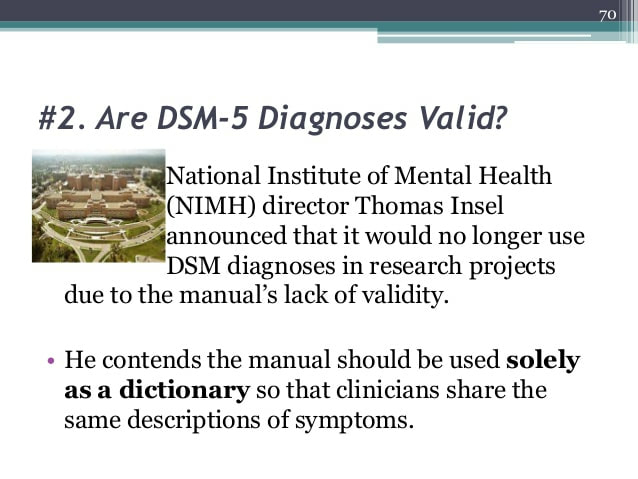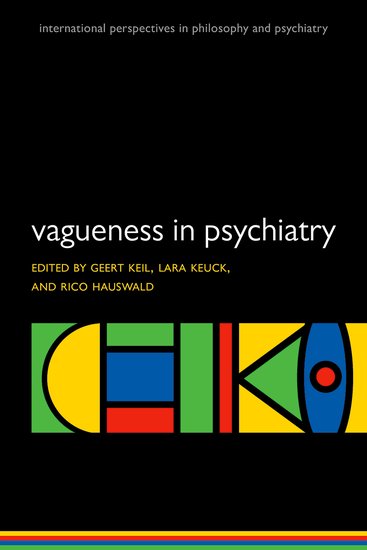"One Flew Over The Cuckoo's Nest" (1974): By "Cuckoo's Nest" we mean the Criminal Justice System
The DSM 5 - The Criminal Justice System wheel of fortune
THIS IS A LITTLE BIT LIKE "WHEEL OF FORTUNE" -- EXCEPT INSTEAD OF LETTERS, WE'LL BE UNCOVERING --
State of the Science
|
Dr. Thomas Insel, former Director of the National Institute of Mental Health -- to paraphrase there is much we DON'T KNOW -- We're in an AGE OF DISCOVERY.
|
Addresses the problem of indeterminacy in psychiatry and its social, moral and legal implications
https://global.oup.com/academic/product/vagueness-in-psychiatry-9780198722373?cc=us&lang=en& |

Neuro
science News January 4, 2019 “But we needed to take an agnostic approach and let the data tell us what the brain-behavioural profiles of our study participants looked like. It turned out that the relationship between brain function and social behaviour had nothing to do with conventional diagnostic categories in the DSM-5 (Diagnostic and Statistical Manual of Mental Disorders).” -------Dr. Aristotle Voineskos in the Campbell Family Mental Health Research Institute at the Centre for Addiction and Mental Health (CAMH) in Toronto Neuroscience News Brains of People With Schizophrenia Related Disorders Aren’t All the Same https://neurosciencenews.com/schizophrenia-neurobiology-10430/ |
American Bar Association criminal justice standards on mental health (2016)
|
Your browser does not support viewing this document. Click here to download the document.
|
Standard 7-1.1. Terminology |
Evidentiary Issues
Testimony by experts
|
Some Common Evidentiary Considerations
When considering evidentiary issues -- there is often the consideration of the:
Further, when considering evidence that is "unfairly prejudicial" and must be excluded:
|
Federal Rule of Evidence 702. Testimony by Expert Witnesses |
Colorado Rule of Evidence 702. Testimony by Experts |
DSM 5
Basis of opinion testimony by experts
|
So what is the problem:
Mental Health Researchers @ the Highest Level -- the US National Institute of Mental Health will NOT rely on the categories in the DSM 5 because they lack scientific validity. The vast majority of Clinicians & Mental Health professionals rely on these categories because they don't have anything else. Where this is really something approaching an unwitting Ethnic Cleansing & Holocaust is in the Criminal Justice System with regard to the mass diagnosis of "Anti-Social Personality Disorder" for any bad conduct we don't really understand. We hesitate to use such strong language because there is going to be a LOT OF PUSH BACK BUT the damage done by this unscientific diagnosis of "Anti-Social Personality Disorder" which is really Code for Evil/Bad Person -- is hard to overstate. |
Rule 703 – Bases of an Expert |
Rule 703. Bases of Opinion Testimony by Experts |
|
Daubert Standard
Definition This is the standard used by a trial judge to assess whether an expert witness’s scientific testimony is based on scientifically valid reasoning that which can properly be applied to the facts at issue. Overview This standard comes from the Supreme Court case, Daubert v. Merrell Dow Pharmaceuticals Inc., 509 U.S. 579 (1993). Under the Daubert standard, the factors that may be considered in determining whether the methodology is valid are:
The Daubert standard is the test currently used in the federal courts and some state courts. In the federal court system, it replaced the Frye standard, which is still used in some states. https://www.law.cornell.edu/wex/daubert_standard Colorado uses the Daubert Standard https://www.testifyingtraining.com/daubert-frye-used-expert-witness-testimony-admissibility-colorado/ |
|
|
|
|
(5) whether it has attracted widespread acceptance within a relevant scientific community
|
|
Your browser does not support viewing this document. Click here to download the document.
|
CRS 13-25-128. Rules of evidence - grant of authority subject to reservation |
Due Process -- Vagueness Doctrine
Vagueness doctrine Definition) |
|
Grayned v. City of Rockford, 408 U.S. 104 (1972) |
Equal Protection Clause
--14th Amendment to the US Constitution
|
ABA Journal
14th Amendment should be used to ensure equal protection for those with disabilities By ABA [American Bar Association] President Linda Klein (2017) The 14th Amendment, and especially its Equal Protection Clause, has been a powerful tool in the battle for civil rights in our courts ever since the 1954 Brown v Board of Education ruling that determined schools segregated by race were unconstitutional. |
|
|
rational basis review [Under Equal Protection]
|
|
Rational Basis TestOverviewThe rational basis test is a judicial review test. A judicial review test is what courts use to determine the constitutionality of a statute or ordinance.
The Requirements of the Test to pass the rational basis test, the statute or ordinance must have a legitimate state interest, and there must be a rational connection between the statute's/ordinance's means and goals. https://www.law.cornell.edu/wex/rational_basis_test Discussion of City of Cleburne v. Cleburne Living Center (1985), a Supreme Court case which found no rational basis for refusing to grant a permit to a group home for individuals with intellectual disabilities.
The language of the time "mental retardation" has since been socially rejected. |
The Canon of Rational Basis Review
Your browser does not support viewing this document. Click here to download the document.
|


